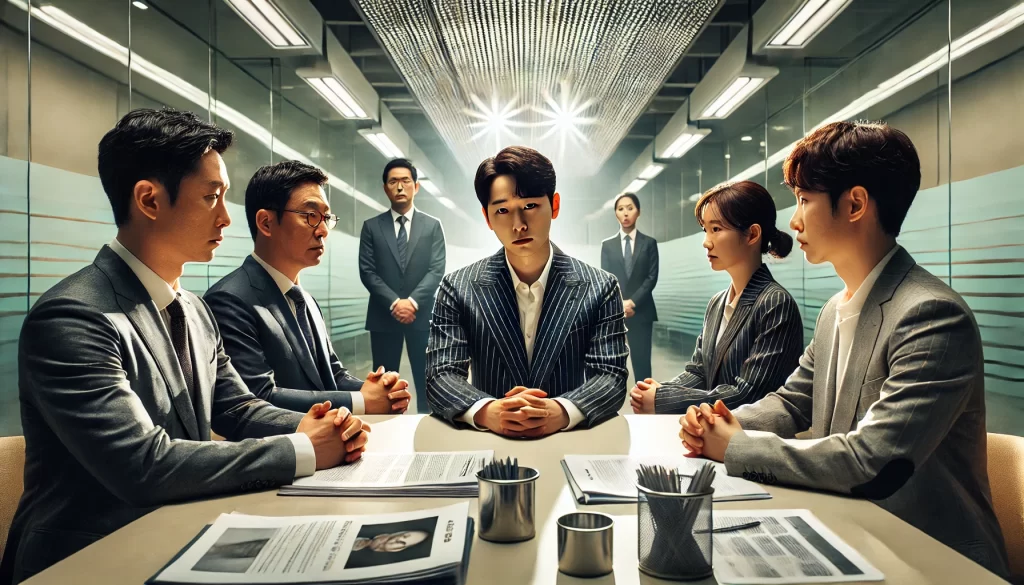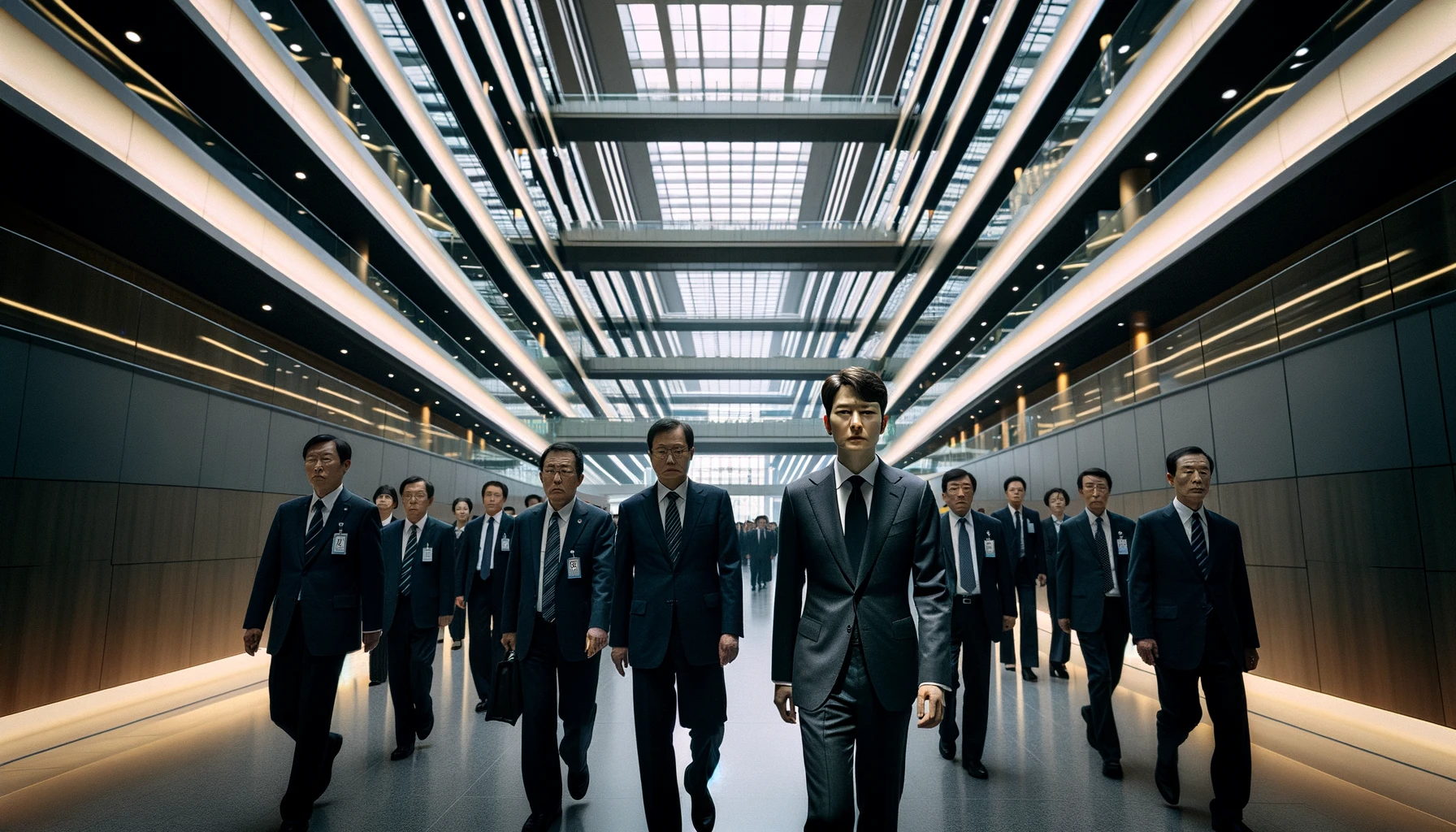SEOUL — On Wednesday, January 15, President Yoon Suk Yeol of South Korea was arrested by investigators, becoming the first sitting president in the nation’s history to face detention during an investigation. This event follows weeks of tension after Yoon declared martial law on December 3, which caused a political crisis and deepened divisions within the country.
Yoon was impeached by South Korea’s National Assembly shortly after the martial law declaration, which was seen by many as a dangerous step toward authoritarian rule. His impeachment led to legal proceedings and calls for his arrest, culminating in a dramatic standoff with investigators earlier this month when they attempted to detain him for questioning.
The Martial Law Crisis
The crisis began when Yoon, frustrated by what he called a “legislative dictatorship” by the opposition-controlled parliament, declared martial law. During the six hours it was in effect, he ordered military commanders to storm the National Assembly and remove lawmakers if necessary. His actions were widely criticized, with many comparing the situation to the days of military rule in South Korea’s past.
Yoon defended his actions, stating that he was trying to prevent chaos and restore order. He described his political opponents as “anti-state forces” and accused them of trying to undermine his leadership. However, his martial law decree was quickly overturned by the National Assembly, and he was impeached soon after.
Dramatic Arrest Operation
Yoon’s arrest followed a failed attempt by investigators on January 3, when his presidential guards blocked law enforcement from serving a detention warrant. During that standoff, 200 of Yoon’s security officials created a human barrier to prevent 100 police officers and investigators from entering his residence.
This time, the Corruption Investigation Office for High-ranking Officials (CIO) came prepared. Over 1,000 police officers, including riot units and special forces trained for high-risk operations, surrounded Yoon’s hilltop residence in Seoul before dawn. Some officers carried ladders to climb over buses that had been used as barricades by Yoon’s supporters. Others attempted to enter the residence through a mountain trail at the back of the compound.
The operation lasted for several hours. Investigators warned Yoon’s guards that any interference could lead to their arrest and loss of their pensions. Eventually, after two hours of negotiations, Yoon agreed to leave the compound. He was taken to the CIO headquarters in a convoy without handcuffs.
In a video message recorded before his detention, Yoon criticized the investigation as “illegal” but said he decided to cooperate to avoid a violent clash between his guards and law enforcement. Despite his cooperation, Yoon refused to answer any questions during a two-and-a-half-hour interrogation session and insisted on his right to remain silent.

Public Reaction and Protests
The political crisis has led to large protests in Seoul, with both supporters and opponents of Yoon gathering near his residence and at the CIO headquarters. Supporters of Yoon, many of whom are older citizens, claim that the investigation is a political attack aimed at humiliating the president. They carried banners with slogans such as “Stop the Steal” and “CCP Out,” referring to unproven claims of election fraud and foreign interference.
On the other hand, younger protesters have expressed relief at Yoon’s arrest. Many have been active in demonstrations against the president since the martial law declaration. “This is the happiest I’ve been in my life,” said Choi Haysu, a 20-year-old college student, who compared the protests to the pro-democracy movements of the 1980s. A recent poll showed that 75% of South Koreans aged 18 to 29 support Yoon’s impeachment, while older citizens are more sympathetic to him.
Legal Proceedings and What Happens Next
Yoon is being held at the Seoul Detention Center, where he can be questioned for up to 48 hours. If investigators decide to seek an arrest warrant, they will have up to 20 days to question him further before filing formal charges. Prosecutors have already charged several military officials who helped Yoon enforce martial law with insurrection, a crime punishable by life imprisonment or even the death penalty.
Meanwhile, the Constitutional Court has begun reviewing the legality of Yoon’s impeachment. If the court upholds the impeachment, a new presidential election must be held within two months. Political analysts believe that this process will further divide the country and could lead to more political instability.
One analyst, Park Sung-min, commented, “People are now less concerned about whether Yoon will be arrested or not. The focus has shifted to who will become the next president.” The opposition leader, Lee Jae-myung, is considered a leading candidate, but he has also faced legal troubles, with supporters of Yoon accusing him of being a dangerous radical.
A Nation Divided
South Korea is experiencing one of its worst political crises in decades. Yoon’s People Power Party remains defiant, with many lawmakers accusing the opposition of using the legal system to gain political power. “They wanted to humiliate him by arresting a sitting president,” said Kwon Young-se, a senior member of Yoon’s party.
Despite these accusations, courts have dismissed challenges to the legality of Yoon’s arrest, and many citizens believe that his detention was necessary to preserve democracy. “This is the first step toward restoring the rule of law,” said Park Chan-dae, a lawmaker from the Democratic Party.
This article is based on the following articles:
https://www.theguardian.com/world/2025/jan/14/south-koreas-yoon-suk-yeol-faces-fresh-arrest-attempt
https://www.npr.org/2025/01/15/nx-s1-5260714/south-korea-yoon-martial-law-detained

Background Information
1. South Korea’s Government and President’s Role
South Korea is a democratic republic with a government that has three main branches: the executive, legislative, and judicial branches. The president is the head of the executive branch and serves as both the head of state and the commander-in-chief of the military. The president is elected by the people and typically serves a five-year term without the possibility of re-election.
The National Assembly is the legislative branch, responsible for making laws and overseeing the government. It is composed of elected representatives from various political parties. The judicial branch, including the Constitutional Court, ensures that laws and government actions follow the country’s constitution.
In cases of serious misconduct, the National Assembly has the power to impeach (formally accuse and charge) the president. If impeachment occurs, the Constitutional Court must review the case to determine whether the president should be removed from office.
2. Martial Law: What It Is and Why It’s Controversial
Martial law is a special type of government rule where the military takes control of normal government functions and enforces order. This can happen during extreme emergencies, such as a war or major disaster, when the government believes regular law enforcement cannot maintain order. Under martial law, civil rights, such as the freedom to assemble or protest, may be restricted, and the military may be given the power to arrest and detain people.
Martial law is controversial because it can lead to abuses of power and the suspension of democracy. In South Korea, martial law has a negative historical association with periods of military dictatorship, particularly in the 1960s to 1980s when military leaders ruled the country.
3. South Korea’s History with Military Rule and Democracy
South Korea has experienced significant political change over the past century. After being freed from Japanese rule in 1945, the country was divided into North and South Korea. The South became a democratic republic, but its early years were marked by political instability and authoritarian rule.
Between the 1960s and 1980s, South Korea was controlled by military leaders who declared martial law at various times to suppress protests and maintain their power. The most famous incident occurred in 1980, during the Gwangju Uprising, when citizens protested for democracy and were met with a violent military crackdown.
South Korea eventually transitioned to a full democracy in the late 1980s, and since then, its people have enjoyed greater political freedoms. This history of military rule is why Yoon’s recent declaration of martial law caused such a strong reaction—many South Koreans fear a return to the undemocratic past.
4. Political Divisions in South Korea
South Korea has two major political groups: conservatives and liberals. Conservatives tend to prioritize strong leadership, national security, and traditional values, while liberals focus on social welfare, human rights, and diplomacy. These differences often lead to intense political rivalries.
Yoon Suk Yeol belongs to the People Power Party, a conservative group. His main opponents are from the Democratic Party, a liberal group. The rivalry between these two parties has often resulted in political gridlock, where neither side can agree on important issues, slowing down government progress.
5. Impeachment in South Korea
Impeachment is a formal process where a government official, such as the president, is accused of wrongdoing. In South Korea’s history, Yoon is not the first president to be impeached. In 2017, President Park Geun-hye was impeached and removed from office after being found guilty of corruption.
The impeachment process begins in the National Assembly, where lawmakers must vote on whether to impeach the president. If the vote passes, the Constitutional Court reviews the case and decides whether the president should be permanently removed from office.
6. The Role of the Corruption Investigation Office (CIO)
The Corruption Investigation Office for High-ranking Officials (CIO) was created in 2021 to investigate corruption and misconduct by powerful government officials, including the president, lawmakers, judges, and military leaders. The CIO was established because many people believed that ordinary prosecutors were not independent enough to investigate high-ranking officials fairly.
Although the CIO can investigate the president, it does not have the power to prosecute (officially charge and try) the president in court. Instead, it must refer its findings to public prosecutors, who can decide whether to press charges.
7. South Korea’s Protests and Political Engagement
Protests are a common way for South Koreans to express their political views. The country has a long history of peaceful and sometimes violent protests, especially during its transition from military rule to democracy. Many South Koreans believe that peaceful protests helped bring about democracy in the late 1980s, which is why they are considered an important part of political life today.
Young people, in particular, have been very active in protests against Yoon Suk Yeol. Many of them grew up in a stable democracy and fear that actions like martial law could take away their freedoms.
8. Key Terms to Know
- Impeachment: The process of formally accusing a government official of wrongdoing.
- Martial Law: A temporary rule by the military during an emergency, which can limit citizens’ rights.
- National Assembly: The legislative body of South Korea, responsible for making laws and overseeing the government.
- Corruption Investigation Office (CIO): A special agency created to investigate corruption among high-ranking officials.
- Constitutional Court: The court that decides whether laws and government actions follow the constitution.

Debate/Essay Questions
- Was it appropriate for law enforcement to use a large number of police and special forces to arrest President Yoon?
- Does the impeachment of President Yoon reflect a healthy democracy or political revenge by his opponents?
Please subscribe to Insight Fortnight, our biweekly newsletter!
